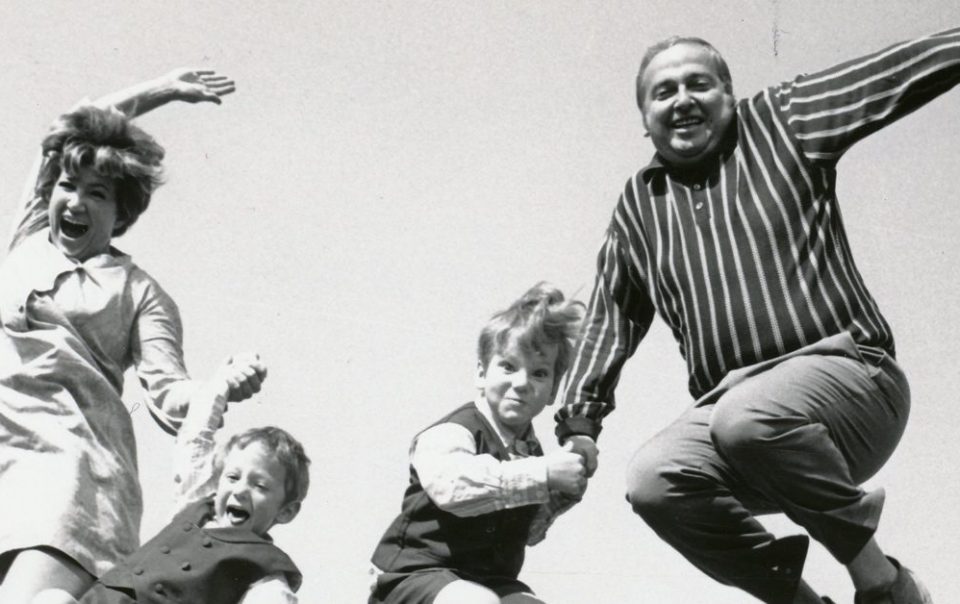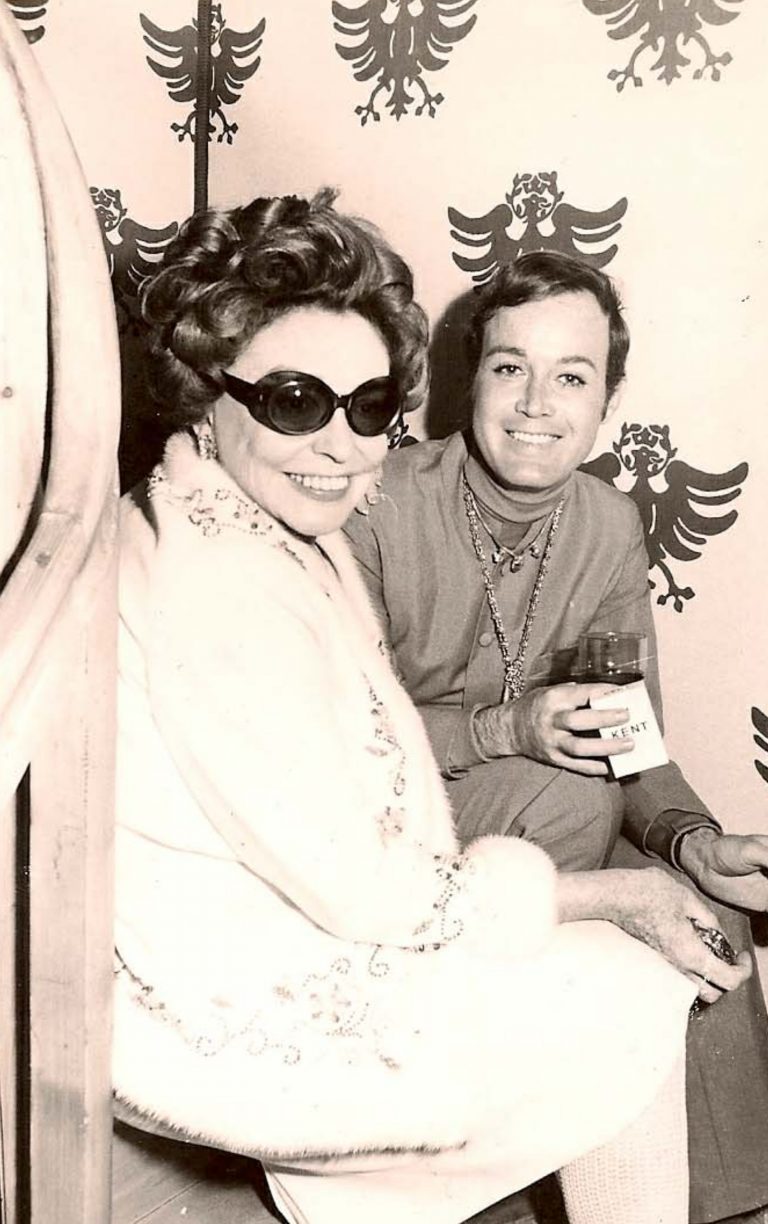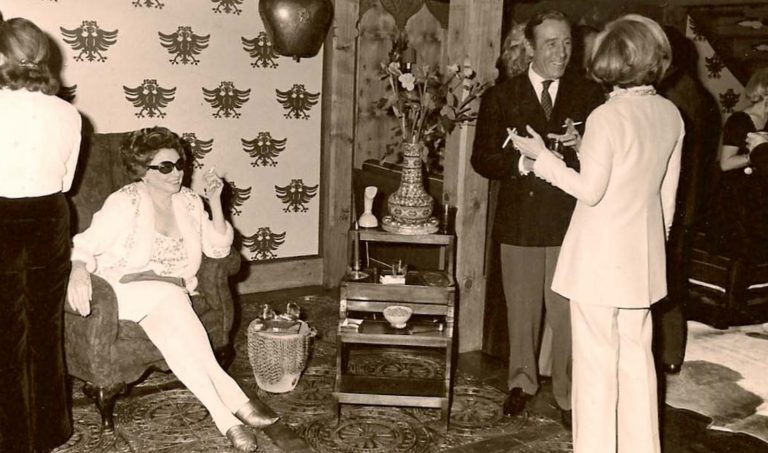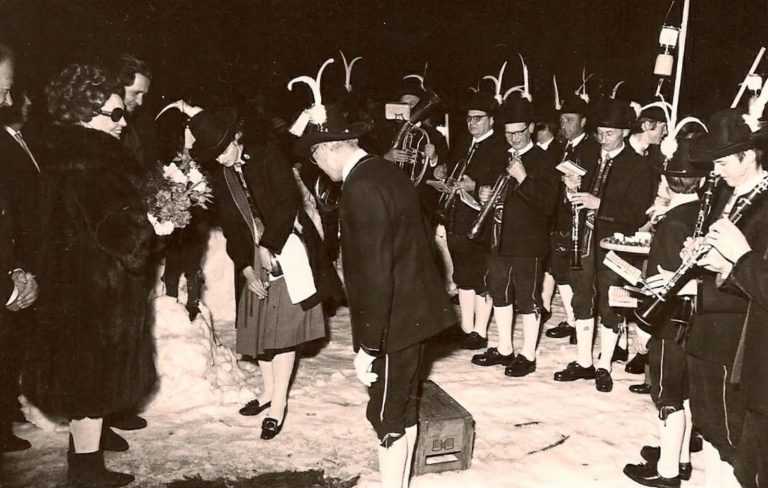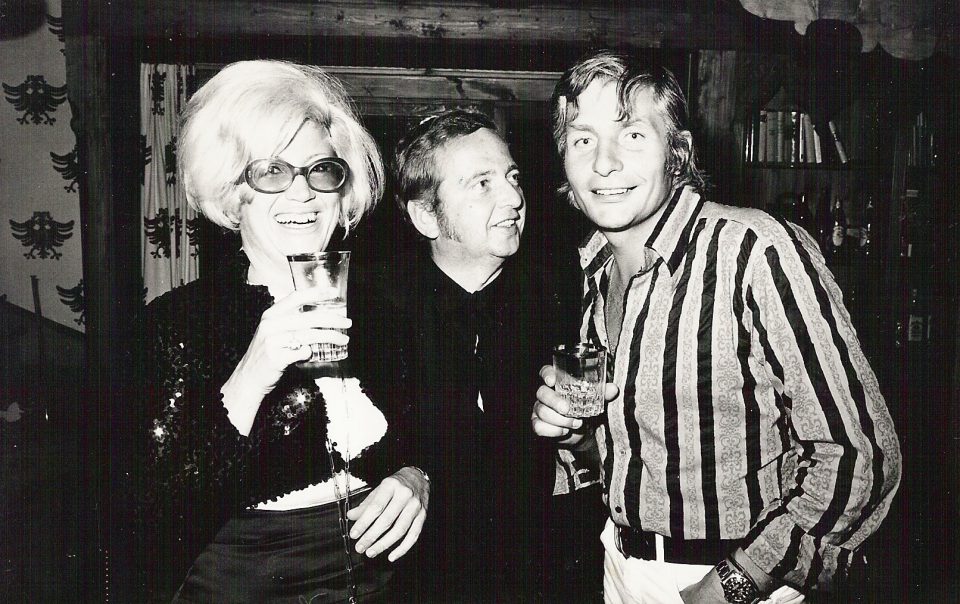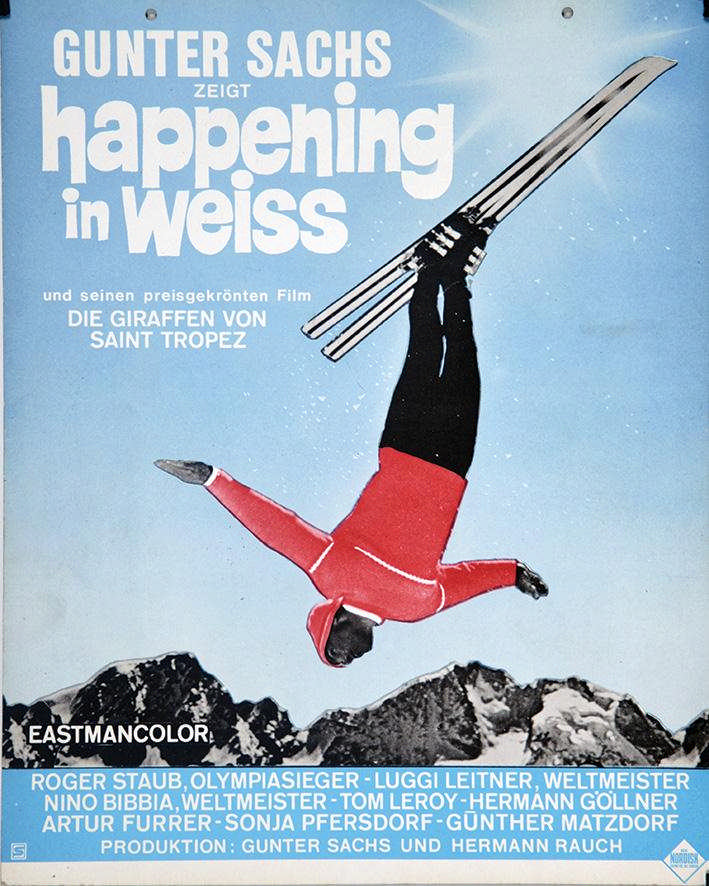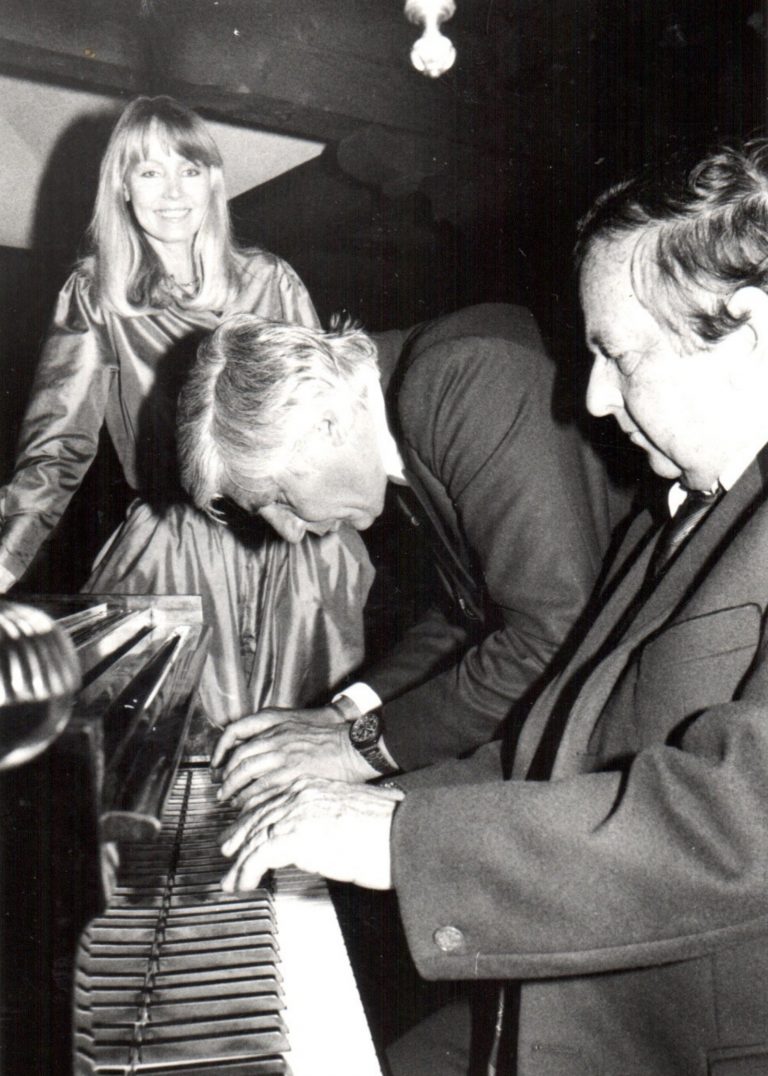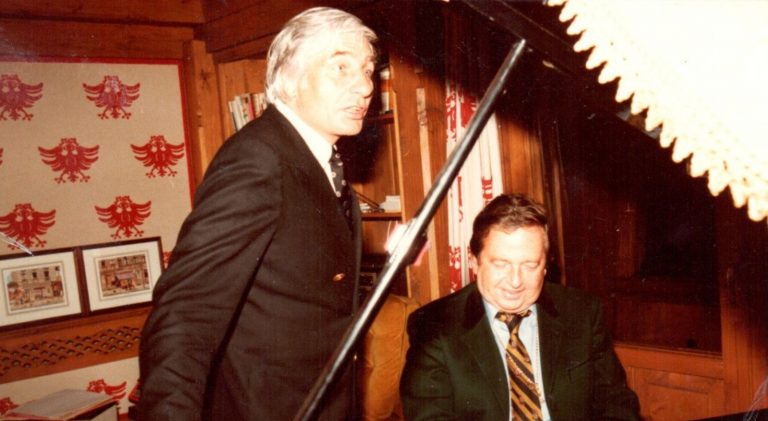It was 1960 when Peter received his first German Film Award (Flucht nach Berlin (Escape to Berlin)) and began to establish a name for himself. These early successes occurred alongside a major event in his private life: the birth of his first son, Philip. “It was me who made the music,” Peter recalled, “but it was my dear Cordy who drove my life. She said to me back then: ‘You have everything here, you know everyone. You address everyone as a friend, and they do the same to you. We should go somewhere else and start over.” In August 1961, the month the Wall was built, the Thomas family moved to Grünwald, a municipality near the Bavarian capital of Munich. The latter had become a culturally important metropolis and film location.
Cordy, Peter’s wife, on the change of location:
“At first, Peter wasn’t convinced. But once we got to Munich, he was immediately overwhelmed with offers of work.”
And Peter:
“When you turn 18, you decide whether you want to work for yourself or for somebody else. Anybody who has been there will know: if the money isn’t there on the first of the month, you need to be prepared to struggle. But this struggle liberates your mind and forces you to get creative. This also makes you more convincing as an artist. When one’s needs are completely met, the power to convince is somewhat diminished.”
His second son, Dominik, was born in 1962.




